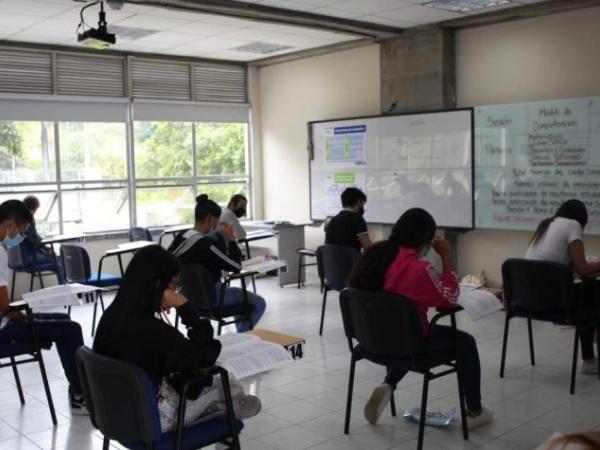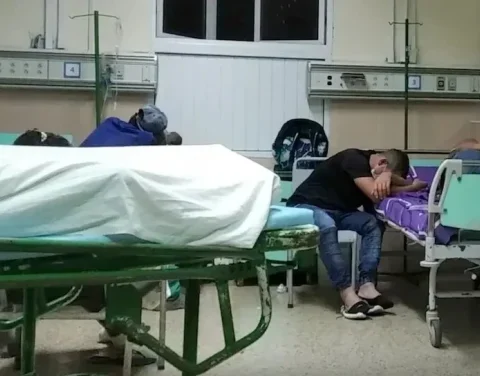In 2020, with the COVID-19 pandemic, an austerity provision of the Treasury for the country’s public services was implemented, which included that there could be no upgrades to civil servants without express authorization from the Budget Directorate (Dipres ).
Given this, from the union association of the Seremi de Salud de Magallanes, a review of the information found regarding the provision of portfolio contracts was carried out, through the Active Transparency platform, and they affirm that they found with “the unpleasant surprise that 31 officials of the Ministry of Health have promoted a grade, between December 2019 and October 2022 (period in budget restriction); with grades much higher than ours (average for professionals grade 9 EUS)”.
They maintain that, in relation to said promotions, they are “all civil servants who are not heads and who, when comparing the function they fulfilled before going up a grade, maintain the same level of responsibility.” Furthermore, they add, “there are examples of people who are quickly transferred from the administrative-technical level to the professional level; starting at the lowest level and in a few years they manage to have better degrees than most of the officials of our Seremi”.
Therefore, they criticize that austerity “only applies to the regions and they go up a grade, on average every 2 years, having the desired civil servant career; not complying with the Treasury circular or with the Good Labor Practices protocols that they they impose on us”.
Added to the above, from the Magallanes Regional Ministerial Health Secretariat they indicate that ministry officials are already entering a much higher degree than what is required of the Seremis and, therefore, “it is clear that the modification of DFL 5 (transfer to the plant) is not a priority for the authorities at the central level”.
“The workers of the Seremis are second-rate officials and people are really disappointed, frustrated and tired,” they say.
They assure that the response they have had from the Government is always the same: that everything must be authorized by Dipres and, consequently, officials “must continue to wait for the will of the ministry that never arrives.” This, taking into account that the Budget Law stipulates that it is the central level that distributes the resources to the country’s Regional Ministerial Secretariats, where – in his opinion – “it is clear that they prioritize themselves over the needs of the Seremis” .
The total staff of the Minsal is 631 people (excluding managerial degrees) versus 120 in the Seremi de Magallanes. With these data, they made a breakdown for each grade and number of officials in said grades, which were compared as a percentage, to show that 31% of their workforce is in the top professional grade (grade 5 EUS), while they only have the 8% of its officials in the best grades.

From the Regional Ministerial Secretariat they point out that, if compared in relation to the endowment and the number of positions between grades 5 to 8 EUS, 57% of Minsal officials are in these higher grades versus 13% of the Seremi de Magellan health.
“From this comparative work, it can be extracted that, in the case of chiefdoms, our Seremi has 5 chiefdoms at the top degree and the Minsal 46, having 195 grades 5 EUS in total and 149 grades 5 EUS that are not chiefdoms (the limit for the professional establishment). Unfair situation, if we think that the heads of our provincial offices are in grade 10 EUS”, they specify.
At the same time, they add that the situation is reversed if the lowest grades between 20 and 15 EUS are compared, where the Ministry of Health only has 11% of its workers in those lowest grades and Magallanes, on the other hand, 52%. . Therefore, “we continue to wonder why these differences.”
In the following graph, it is possible to see the percentage differences between Minsal and Seremi.

“This situation cannot continue like this, in which the central level fixes its salaries at the expense of the resources of the regions, because the budgetary savings of the regions return to the central level and, clearly, they use them to improve their officials, when we are supposed to be a single organism”, they sentence from the Seremi de Magallanes.
In this sense, they demand, first of all, to improve their officials by at least 2 grades, using the same criteria as the ministry, as well as the transfer of administrative-technical to professional ranks, according to the functions they perform. “We also request an increase in the grades of officials with first and second subrogation responsibility, those in charge of the unit and the provincial headquarters, that is, that the Seremis have the same proportion of grades, approved at the central level.”
From the Government they indicated to the Seremi that they are actually going to work on the transfer to the plant, but this should come out in the next Budget Law for 2024, plus what the typecasting contests take (several months).
“Seremi workers cannot wait any longer. Therefore, while we wait for that, there must be a clear policy for everyone that is established until the long-awaited transfer to the plant is approved,” they conclude.

















